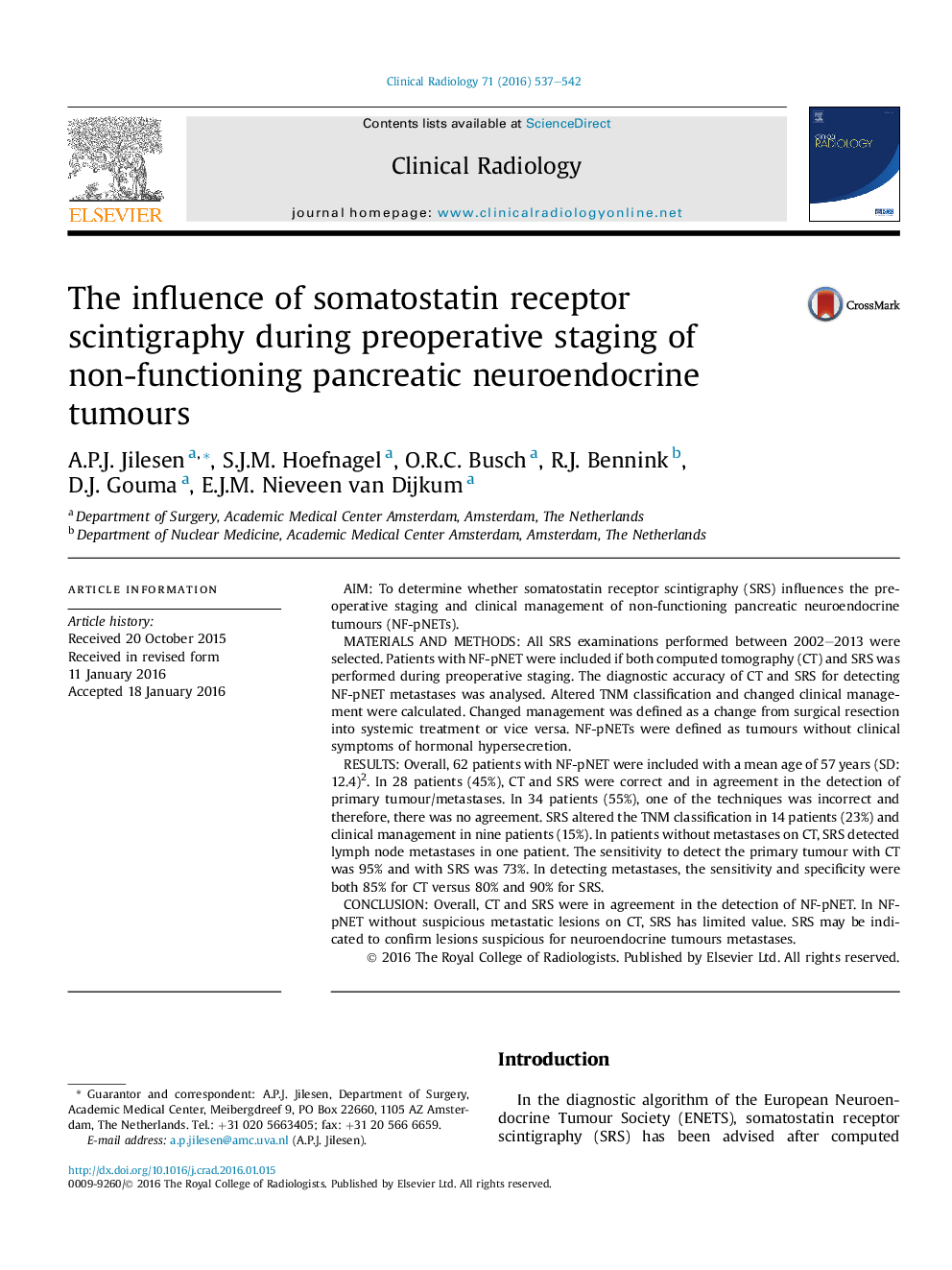| Article ID | Journal | Published Year | Pages | File Type |
|---|---|---|---|---|
| 3981322 | Clinical Radiology | 2016 | 6 Pages |
•In 28 patients (45%), CT and SRS were correct and in agreement in the detection of primary tumor/metastases.•In 34 patients (55%) one of the modalities was incorrect and therefore, there was no agreement.•Sensitivity to detect the primary tumor with CT and SRS were 95% versus 73%.•SRS altered the TNM classification in 14 patients (23%) and clinical management in 9 patients (15%).
AimTo determine whether somatostatin receptor scintigraphy (SRS) influences the preoperative staging and clinical management of non-functioning pancreatic neuroendocrine tumours (NF-pNETs).Materials and methodsAll SRS examinations performed between 2002–2013 were selected. Patients with NF-pNET were included if both computed tomography (CT) and SRS was performed during preoperative staging. The diagnostic accuracy of CT and SRS for detecting NF-pNET metastases was analysed. Altered TNM classification and changed clinical management were calculated. Changed management was defined as a change from surgical resection into systemic treatment or vice versa. NF-pNETs were defined as tumours without clinical symptoms of hormonal hypersecretion.ResultsOverall, 62 patients with NF-pNET were included with a mean age of 57 years (SD: 12.4)2. In 28 patients (45%), CT and SRS were correct and in agreement in the detection of primary tumour/metastases. In 34 patients (55%), one of the techniques was incorrect and therefore, there was no agreement. SRS altered the TNM classification in 14 patients (23%) and clinical management in nine patients (15%). In patients without metastases on CT, SRS detected lymph node metastases in one patient. The sensitivity to detect the primary tumour with CT was 95% and with SRS was 73%. In detecting metastases, the sensitivity and specificity were both 85% for CT versus 80% and 90% for SRS.ConclusionOverall, CT and SRS were in agreement in the detection of NF-pNET. In NF-pNET without suspicious metastatic lesions on CT, SRS has limited value. SRS may be indicated to confirm lesions suspicious for neuroendocrine tumours metastases.
